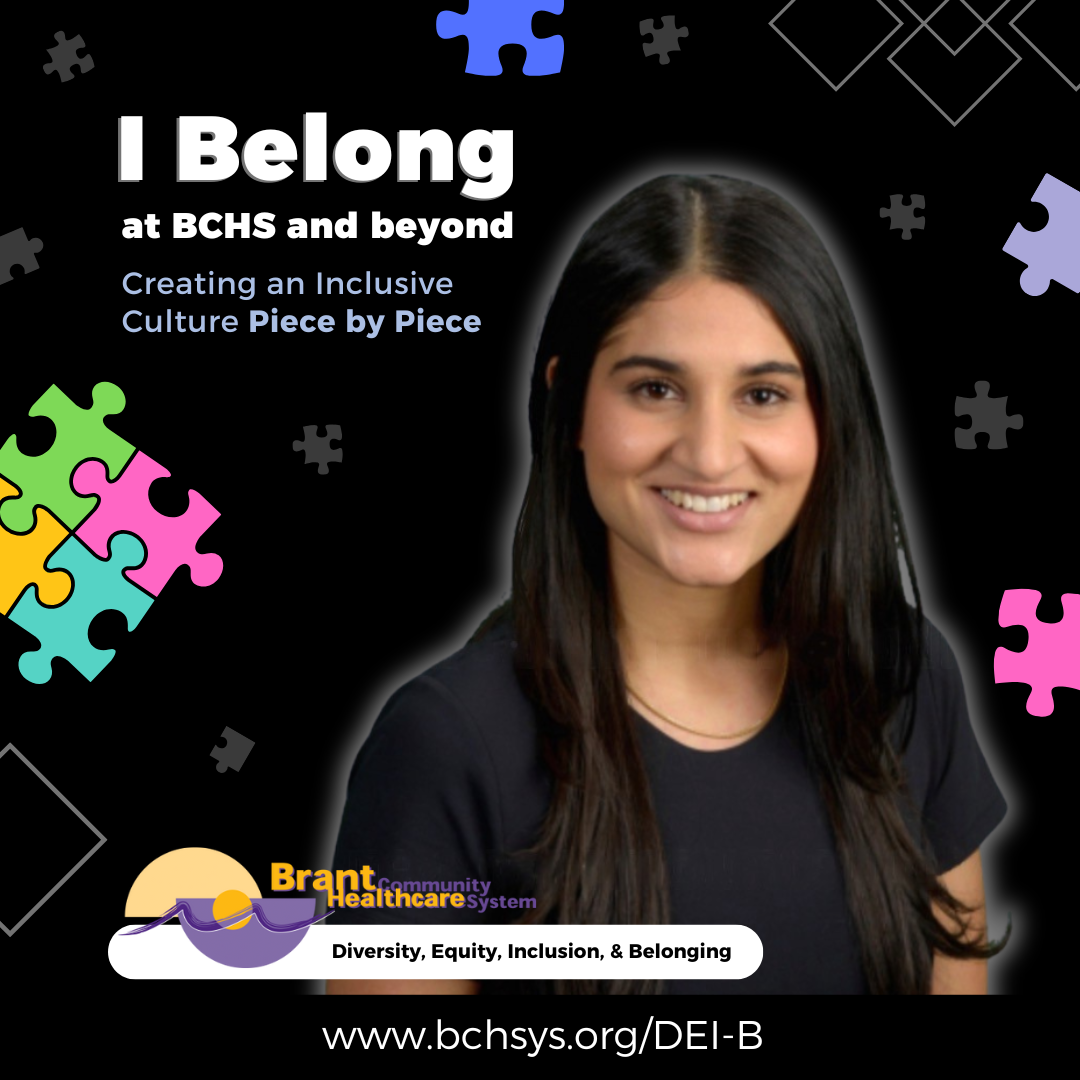Kiran Mann: Sikh Identity at the Core

 Born at Brantford General Hospital to immigrant parents from Punjab, India, Kirandeep (Kiran) Mann grew up in a home grounded in intention, culture, and community. Her parents made Brantford their home in 1994 and, soon after arriving, opened a small family business that became a familiar part of the local landscape. They didn’t just settle—they built a life. From day one, they ensured Kiran was raised with a strong sense of pride: equally in being Canadian, and in being Sikh and Punjabi.
Born at Brantford General Hospital to immigrant parents from Punjab, India, Kirandeep (Kiran) Mann grew up in a home grounded in intention, culture, and community. Her parents made Brantford their home in 1994 and, soon after arriving, opened a small family business that became a familiar part of the local landscape. They didn’t just settle—they built a life. From day one, they ensured Kiran was raised with a strong sense of pride: equally in being Canadian, and in being Sikh and Punjabi.
“It’s not a part of me,” she says. “It is me. My parents made sure I understood our roots,” she says. “They raised me to be proud of being Sikh, to practise our faith, and to carry our values forward.”
At home, Punjabi culture was ever-present—through language, music, prayer, and tradition. While the world around her reflected Canadian life, her upbringing taught her that identity isn’t something to shrink for acceptance—it’s something to honour and carry with confidence.
Visibility, Pride, and the Power of Identity
When asked about a childhood comfort that still brings her joy, Kiran immediately says Chole Bhature. “It’s fried bread with spicy chickpeas and pickled carrots,” she smiles. “We didn’t have it often—only on special occasions. But when we did, it meant celebration.” Even now, the dish reminds her of home. “Everyone perks up when it’s mentioned. It’s a happy food—filled with memories of family, laughter, and love.”
Kiran’s parents modelled their values not only at home but in how they earned a living. “Our family business wasn’t just about work,” Kiran explains. “It was about sharing our values—things like hospitality, respect, and integrity—all of which are central to being Sikh and Punjabi.” Those same values shaped the tone of their home. “My parents made sure we didn’t just know where we came from—we felt it, every single day.”
One of the most impactful moments in Kiran’s life was watching her father return to wearing a turban. “He didn’t wear one when I was little,” she shares. “But over time, especially as more people in Canada began learning about Sikhism and asking questions about our faith, he felt a stronger responsibility to express his identity visibly.”
In Sikhism, the turban is a sacred symbol of identity, honour, and spiritual commitment. It represents equality, courage, and devotion to faith. For Kiran’s father, wearing it again was not just a personal choice, but a powerful expression of pride and presence.
“It was about honouring our faith, especially in a country where understanding and respect for our community was growing. That had a big impact on me. It reminded me that being visible in your identity can be incredibly powerful.”
Though the Sikh community in Brantford has been relatively small, it is growing—and deeply connected. “We celebrate together. We support one another. There’s real pride in our traditions and in staying close as a community.”
Cultivating Belonging for Ourselves and Others
Kiran’s story is one of intention. Her parents made a deliberate choice to preserve their culture and faith—and in doing so, gave her the gift of growing up with a clear sense of identity and belonging. “I’m so grateful my parents never let go of who they were,” she says. “Because it allowed me to grow up knowing exactly who I am.”
In Sikhism, Chardi Kala is a Punjabi concept that embodies the strength to rise above hardship with an unshakable faith. Kiran lives by this powerful principle. “It means to stay in high spirits—resilient, optimistic, and hopeful, no matter what life brings,” she explains. “That mindset has shaped how I move through the world. It’s something my parents always encouraged, and it’s a part of me now.”
For Kiran, belonging is more than a feeling—it’s a value. That understanding has shaped not only her personal journey, but also her leadership in healthcare. Through her work, Kiran has led the development of the Brant Community Healthcare System’s (BCHS) Strategic Plan, ensuring that equity, inclusion, and representation were embedded throughout. “It was essential that the plan reflected the real diversity of BCHS—our staff, our patients, and our broader community,” she explains.
“We can’t just ask people to bring their full selves to work. We have to build systems and cultures that welcome them when they do. That’s what true inclusion looks like.”
This feature is part of the “I Belong” campaign, where BCHS employees, professional staff, and volunteers are given the opportunity to share their personal stories, strengthening a culture of belonging that empowers each individual and deepens our collective mission to provide exceptional care. Together, we’re creating a more inclusive, connected, and empowered BCHS.





